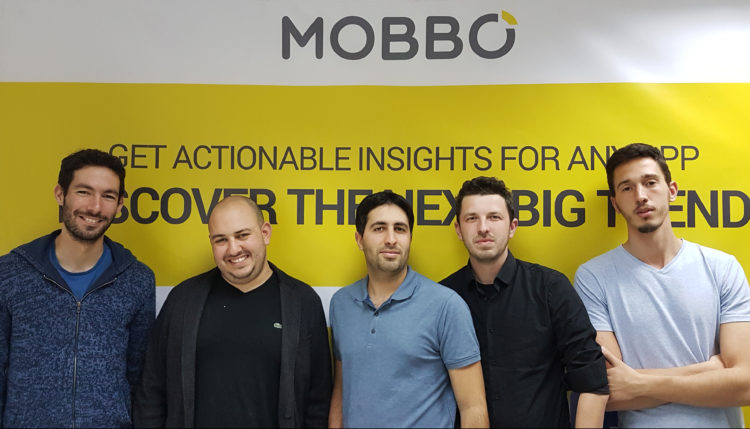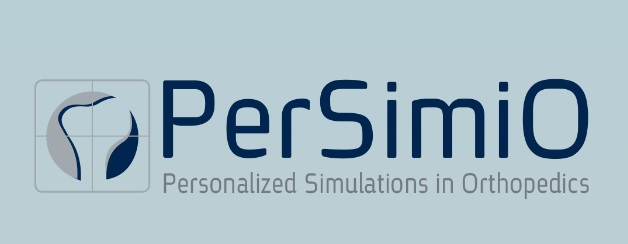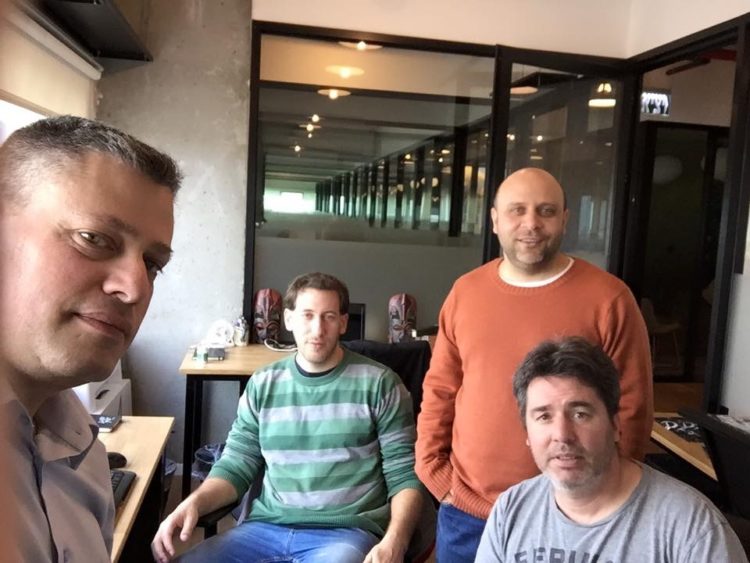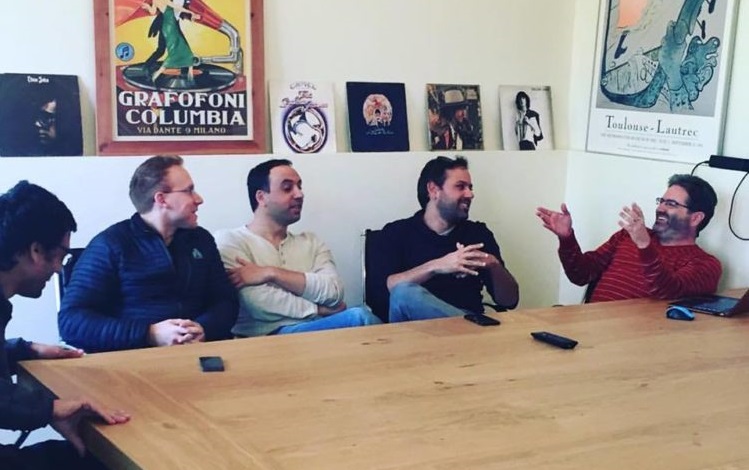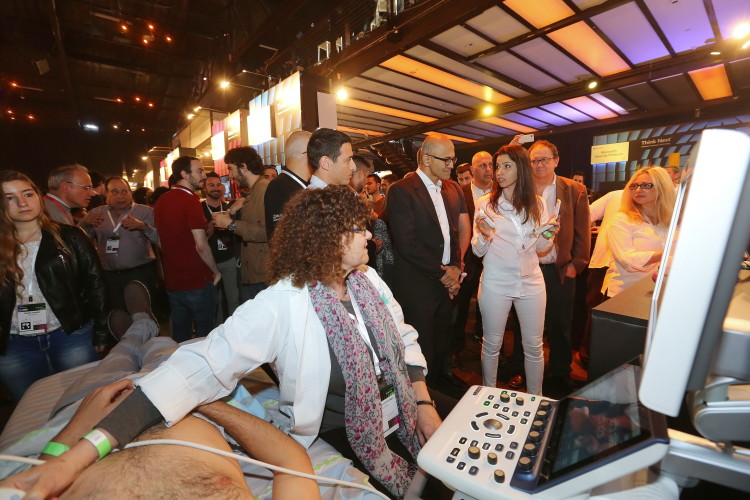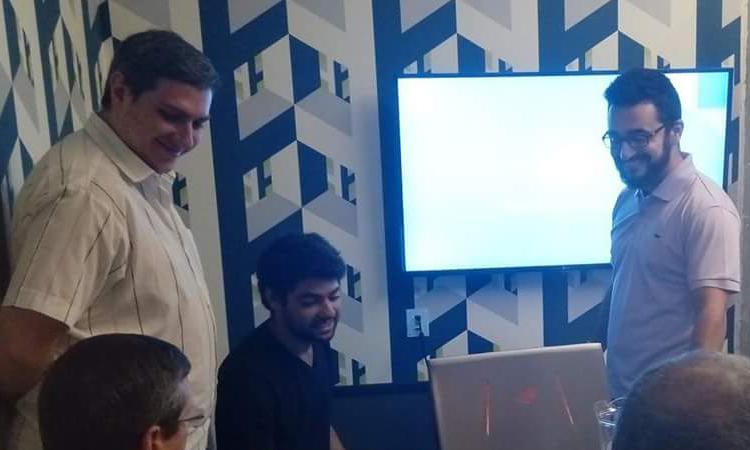
Six Beer-Sheva Startups to Watch
March 29, 2017
Geektime — Dubbed the cyber capital of Israel, Beer-Sheva is fast becoming a hub for innovation. Home to Ben-Gurion University, one of the country’s top universities, the city has a wealth of potential as it positions itself as an alternative to the Tel Aviv tech bubble.
BGU is considered one of the top research centers for issues relating to cyber security. In its over decade long cooperation with Deutsche Telekom, the University has developed an effective infrastructure for transitioning their ideas from planning stages to marketable solutions, providing researchers with essential support throughout the process.
As Beer-Sheva has witnessed a spike in tech activity, major cyber players have set up shop in the Advanced Technologies Park (ATP) adjacent to the University. Recognizing the rising opportunity, Jerusalem Venture Partners launched a cyber security incubator in the ATP, giving a home to many of the city’s promising young companies.
What’s more, the IDF is planning a move next door to the ATP, transferring the bulk of their IT operations to the new base and creating a cyber trifecta of academia, private sector and military innovation.
One of the players at the center of this growing tech community is Tech7. Led by BGU alumni Yotam Tzuker and Alon Naftali, Tech7 focuses on bringing together and creating synergy between startups, entrepreneurs and multi-national companies to promote technological initiatives in Beer-Sheva.
“Tech7 aspires to create an innovative, vibrant and growing tech community in Beer-Sheva, the heart of the Negev,” Tzuker says. “After two years of activity, we have over 14,000 community members and over 100 startups in our network, all from the south.”
That community growth is showing no signs of slowing down. Here are six startups, with BGU alumni or faculty as key players, to watch.
Mobbo
What do you do: Mobbo measures the mobile world and offers powerful data-driven market research tools, providing insights to help publishers, investors, marketers, and analysts across the world make more informed decisions, and succeed in the global app economy.
Who is the founder: Ofir Krisspel, BGU alumnus
When were you founded: 2016
What inspired you to develop this product:
The mobile app market is huge, with over six million apps competing across iTunes and Google Play. The competition is fierce, those who participate in it without data-driven based actions are immediately disadvantaged in the competition. As a mobile app developer with over 100 apps in both app stores, with need of actionable insights, we found it difficult and expensive to get hold of such game-changing information. We’ve developed Mobbo to help make the app market measurable and accessible for all.
Why did you choose to put your startup in Beer-Sheva:
We share an affection for the Negev, and it correlates with our love of making something out of nothing. In a digital world, being far away from the crowded startup scene of Tel Aviv isn’t as huge a disadvantage as before.
Are you coming out with anything new soon that’s worth mentioning:
We’ve just released a comprehensive report about the “State of Mobile Monetization.” The report reveals which ad networks perform best for mobile app marketers and ranks them by performance. Many of them are Israeli companies.
PerSimio
What do you do: We have developed a software that accurately and automatically computes patient-specific bone strength with metastatic tumors, optimizes implants and predicts risk of bone fracture.
Who are the founders: Prof. Zohar Yosibash (BGU Department of Mechanical Engineering); BGU alumni Dr. Nir Trabelsi and Eitan Segall; Prof. Charles Milgrom of Hadassah Medical Center; and Kent W. Myers
When were you founded: January 2015
What inspired you to develop this product:
Orthopedic surgeons’ use of visual information (X-rays or CT scans) and experience to decide on surgical treatment without any knowledge on bone strength was first brought up by discussions between Prof. Milgrom and Prof. Yosibash back in 2000. After proof of concept and double blinded validation, it was time to go to market and develop an automatic product to reside on every orthopedic workstation and cellular device.
Why did you choose to put your startup in Beer-Sheva:
Many Israeli entrepreneurs and most of our employees live in the Negev.
Are you coming out with anything new soon that’s worth mentioning:
In June the company is expected to complete an ongoing joint research project with the Maccabi Health System.
XTRMX
What do you do: XTRMX has developed a very powerful real-time content collaboration solution. Our media engine allows video and audio collaboration in real time without having to upload or download the sources.
Who are the founders: BGU alumni Oran Gilad, Eran Tomer, Netanel Elhadad, and Harel Ram
When were you founded: October 2015
What inspired you to develop this product:
We are media industry veterans who noticed that waiting for big material to be downloaded takes a lot of time and money. We were determined to solve this.
Why did you choose to put your startup in Beer-Sheva:
We all graduated from BGU. We see the Negev as a paradise for entrepreneurs.
Are you coming out with anything new soon that’s worth mentioning:
Big time. We are integrating our real-time engine inside non-linear editors like Adobe Premiere, Apple Final Cut Pro and Avid Media Composer. We also have an application for remote editing that can take materials from different remote storages and consider them as one local storage. We will also release an application that allows civil engineers to look at building plans together in real time.
Croosing
What do you do: The hyperlink – the building block of the internet – hasn’t evolved in 25 years, and its weakness is a limiting factor for everyday users, influencers and marketers. We are re-inventing the antiquated hyperlink, giving it superpowers and making it a superlink.
Who are the founders: BGU alumni Uri Ravin and Yaron Peretz
What inspired you to develop this product:
We realized that the internet is getting old and not keeping up with new needs of content creators and consumers.
Why did you choose to put your startup in Beer-Sheva:
Starting out, one of us had a software development house at Beer-Sheva and the other had an agency at Kfar Saba. Then came the grant from the Innovation Authority with a bonus given to Beer-Sheva-based R&D companies.
After the investors’ money got in, we looked for a new office for Croosing and discovered the real estate benefits of this city. We have one of the most beautiful startup offices in a renovated Turkish house with a big yard and a lot of space.
Are you coming out with anything new soon that’s worth mentioning:
News of our $1.25 million seed funding from Ramot Investments is hot off the presses.
DiACardio
What do you do: Aimed at making ultrasound evaluations faster and more accurate, DiACardio has developed an automated software product based on image processing technology that uses algorithms to detect heart functions called LVivo.
Who are the founders: BGU alumna Michal Yaacobi; Dr. Noa Liel-Cohen (BGU Faculty of Health Sciences), Dr. Hugo Guterman (BGU Department of Electrical and Computer Engineering); Hila Goldman-Aslan, Arnon Toussia-Cohen
What inspired you to develop this product:
The inspiration came once we understood that most of the evaluation of ultrasound of the heart was being done subjectively and there is a real need for automation.
Why did you choose to put your startup in Beer-Sheva:
From the beginning, we have been working closely with Soroka University Medical Center in Beer-Sheva and therefore it made sense to stay here.
Are you coming out with anything new soon that’s worth mentioning:
We are working all the time on new automated tools and 2017 looks promising. The company also recently received $1.95 million in new funding led by one of China’s leading equity firms.
VisualEstate
What do you do: We provide visual tools in both plain 3D and VR for real estate. We build and provide our clients with fully immersive and customized tours of their projects, both interior and exterior.
Who are the founders: BGU alumni Michael Kalantarov and Alon Naftali; and Andrei Salamon
When was the company founded: September 2016
What inspired you to develop this product:
We find the client experience in the real estate world to not be on par with the other markets. If you want to buy a pair of $10 headphones on Amazon, you get a 360 degree view of the product along with a dozen images. But, if you were to buy a new apartment in a developing building, all you get are some sketches and a few renderings of an apartment that may not even be the one you want.
Why did you choose to put your startup in Beer-Sheva:
We believe the South has plenty to offer for a young startup; the ecosystem is very supportive and nurturing.
Are you coming out with anything new soon that’s worth mentioning:
Yes, we are going to automate the whole process in the near future, which will bring prices way down and make the product available for everyone, and all you need to do is just snap a picture of a floor plan.

